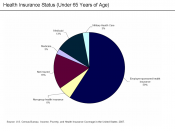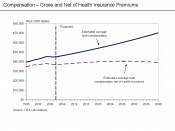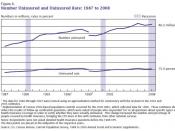Of the approximately 257.8 million individuals currently living in
the United States of America, every one of them has a need for
effective, affordable and accessible health care coverage and
services. Within the past thirty to forty years, the scope and
cost of health care coverage and services has drastically changed,
altering the manner in which health care was previously managed.
There are several factors that have affected the cost of health
care coverage over the course of the past two to three decades.
One of these factors is the introduction and rapidly increasing
enrollment in managed health care insurance plans. Managed care
health insurance plans can, in most cases, help to alleviate the
rising costs of effective medical coverage. Another important
factor that has affected health care costs is the invention and
implementation of new medical technologies. As prominent
researchers and economic analysts have discovered, there is a
distinct and direct correlat! ion between advancing medical
technologies and rising health care costs.
Medical innovation has been
proven time and again to be an important determinant of health care
cost growth. It would appear that managed care health insurance plans,
which attempt to lower health care costs, and highly expensive new
medical innovations and procedures are at cross purposes, pulling
against one another in very different directions. Market-level
comparisons have found the cost growth of health care in markets with
greater managed care penetration to be generally slower than that of
non-managed care health insurance markets. However, managed care is
unlikely to prevent the share of gross domestic product spent on health
care from rising unless the cost-increasing nature of new medical
technologies changes.
Managed care health insurance plans differ greatly from
indemnity fee-for-service, or FFS, insurance plans. Since the
early 1970's, rapidly growing enrollment in managed care health...


